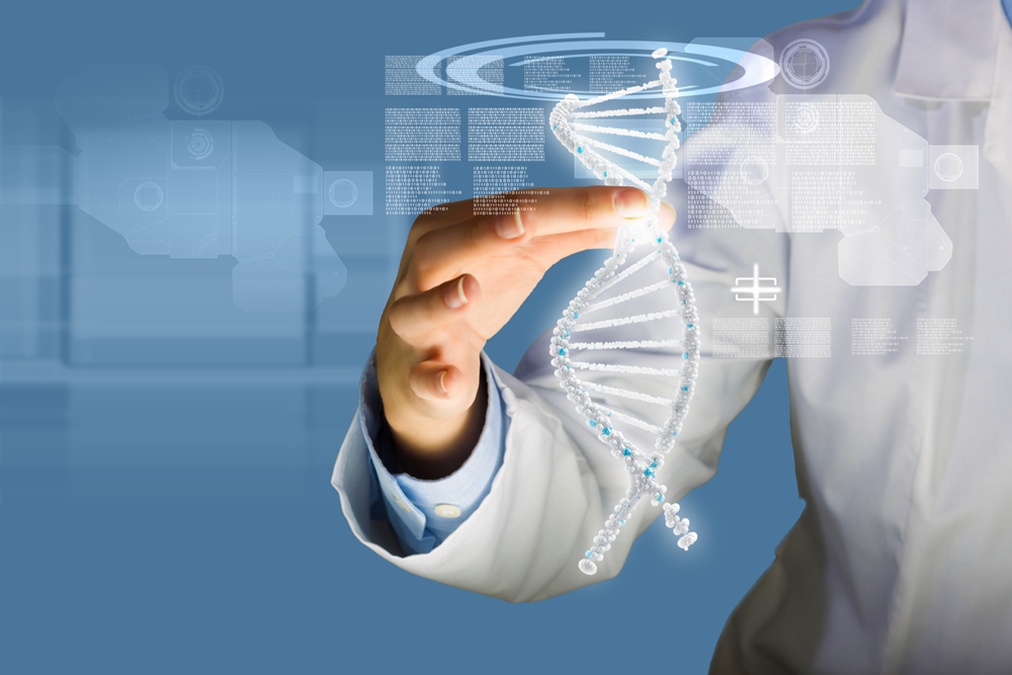 Up until now, researchers have believed that ED is generally caused by factors such as diabetes, cardiovascular disease, testosterone deficiency, anxiety, certain drugs, and so forth.
Up until now, researchers have believed that ED is generally caused by factors such as diabetes, cardiovascular disease, testosterone deficiency, anxiety, certain drugs, and so forth.
But for the first time, researchers have now tied it to a specific place in the human genome.
The study, published in the Proceedings of the National Academy of Sciences, showed that variations in a gene called SIM1 increased the risk of ED by a scary 26%.
The good news is that this can now be naturally and completely reversed.
This is how it works.
The SIM1 gene switches on when you get aroused and sends the required hormones to the right areas that trigger an erection.
If the SIM1 fails to switch on, then no erection happens.
Researchers examined the genetic information of 36,649 men from the Multiethnic Kaiser Permanente Northern California Genetic Epidemiology Research in Adult Health and Aging cohort and 222,358 men from the UK Biobank.
What they discovered was that for many men who suffered from erectile dysfunction, the mechanism that was used to turn on SIM1 did not work.
The interesting part is that the SIM1 is not connected to the body-mass index, heart diseases, low testosterone or any other secondhand factors that could lead to erectile dysfunction.
Its malfunction could therefore be attributed directly as a cause for erectile dysfunction.

 Overcoming IBD
Overcoming IBD Multiple Sclerosis
Multiple Sclerosis Banishing Bronchitis
Banishing Bronchitis Gum Disease Gone
Gum Disease Gone Overcoming Onychomycosis
Overcoming Onychomycosis Neuropathy No More
Neuropathy No More The Prostate Protocol
The Prostate Protocol Brain Booster
Brain Booster
 Ironbound
Ironbound
 Solution for Shingles
Solution for Shingles
 The Bone Density Solution
The Bone Density Solution
 The Ultimate Healing Protocol
The Ultimate Healing Protocol
 The Parkinson's Protocol
The Parkinson's Protocol
 The Chronic Kidney Disease Solution
The Chronic Kidney Disease Solution
 Overthrowing Anxiety
Overthrowing Anxiety The Fatty Liver Solution
The Fatty Liver Solution The Hypothyroidism Solution
The Hypothyroidism Solution
 The End of Gout
The End of Gout The Blood Pressure Program
The Blood Pressure Program
 The Oxigized Cholesterol Strategy
The Oxigized Cholesterol Strategy
 Stop Snoring And Sleep Apnea Program
Stop Snoring And Sleep Apnea Program
 The Arthritis Strategy
The Arthritis Strategy The Vertigo & Dizziness Program
The Vertigo & Dizziness Program The 3-Step Diabetes Strategy
The 3-Step Diabetes Strategy Hemorrhoids Healing Protocol
Hemorrhoids Healing Protocol The Erectile Dysfunction Master
The Erectile Dysfunction Master Weight Loss Breeze
Weight Loss Breeze The IBS Program
The IBS Program The Insomnia Program
The Insomnia Program The Migraine and Headache Program
The Migraine and Headache Program The Neck Pain Solution
The Neck Pain Solution The Menopause Solution
The Menopause Solution The Ejaculation Master
The Ejaculation Master The TMJ Solution
The TMJ Solution The Acid Reflux Solution
The Acid Reflux Solution The Fibromyalgia Solution
The Fibromyalgia Solution The Psoriasis Strategy
The Psoriasis Strategy